Demo video: Website Apps Store
What it does
This module provides the ability to sell apps/modules developed by you in the Apps Store on your website.
Key Features
- Add an Apps menu on your website to navigate to the Apps Store.
- The app/module product option is posted to the Apps Store.
- On the Apps Store website view, provide product information including:
- Add the Add to Cart button on the product view.
- Navigate the Live Demo button to your demo link.
- Information about versions, dependent modules, licenses,...
- Module/app info synced from manifest on GitHub. You can also edit/add/delete this information on the manifest.
Editions Supported
- Community Edition
- Enterprise Edition
Installation
- Navigate to Apps.
- Search with keyword to_website_apps_store.
- Press Install.
Instruction
Instruction video: Website Apps Store
1. Activate the Dedicated Apps Store feature.
After create a module from git branch, you can sell them on the website app store by navigating to Website > Configuration > Settings and choose Dedicated Apps Store.
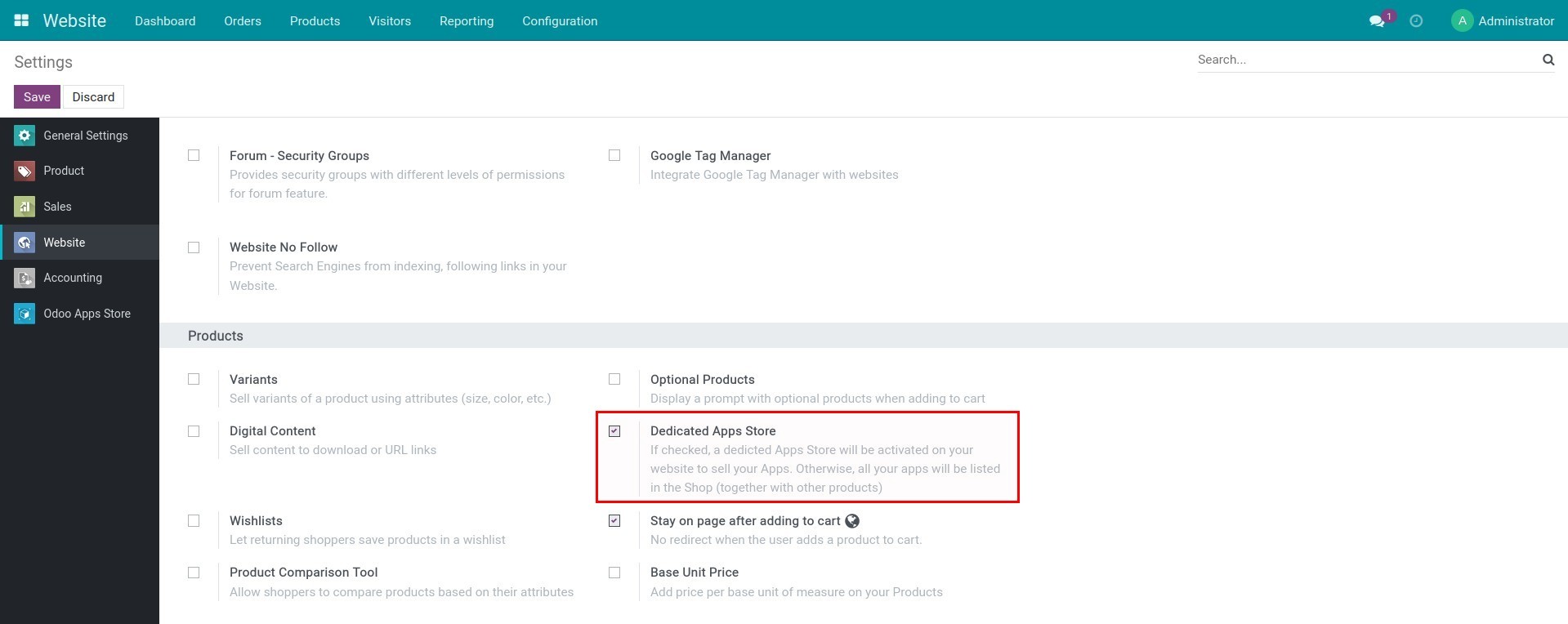
In the case of multi-websites, the module provides a setup at Apps Store > Configuration > Settings > Apps Store Main Website, which allows you to choose the main website to create canonical URLs of apps sold on the Apps Store.
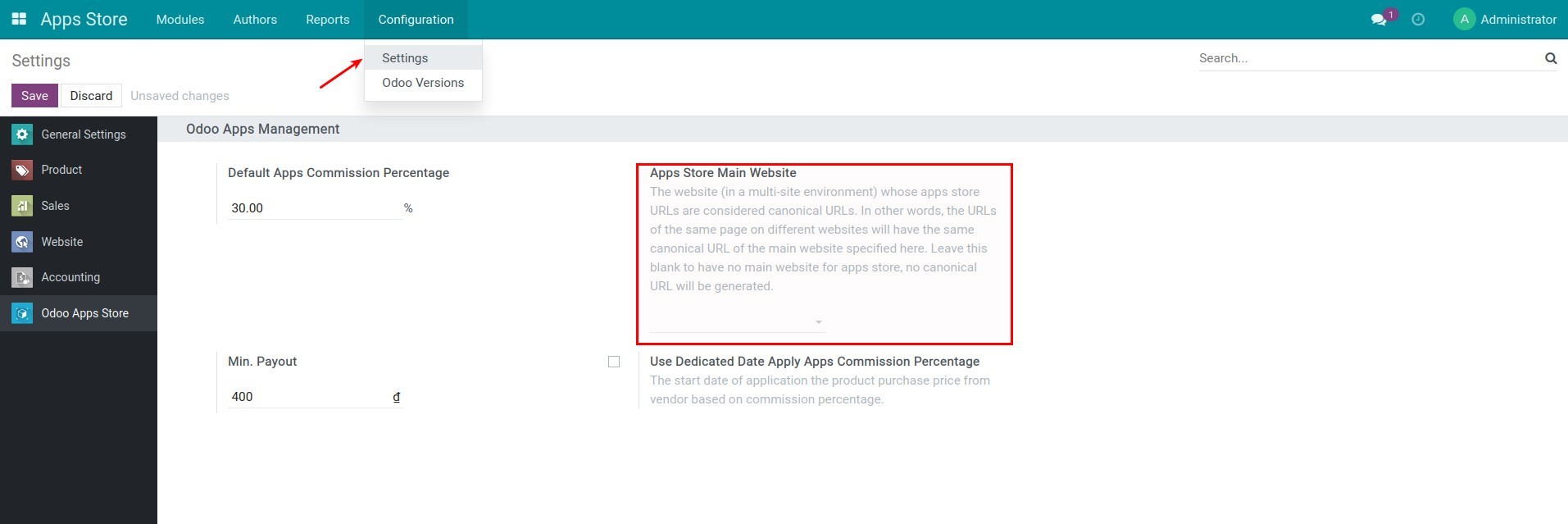
2. Configure the app/module to be posted on the Apps page on Git branches.
Navigate to the Git app, at Git branches that provide options:
- Apps Published: select to publish apps in this branch by default.
- Visible on Apps: if enabled, all apps in this branch will be displayed on the Apps Store on the online sales website.
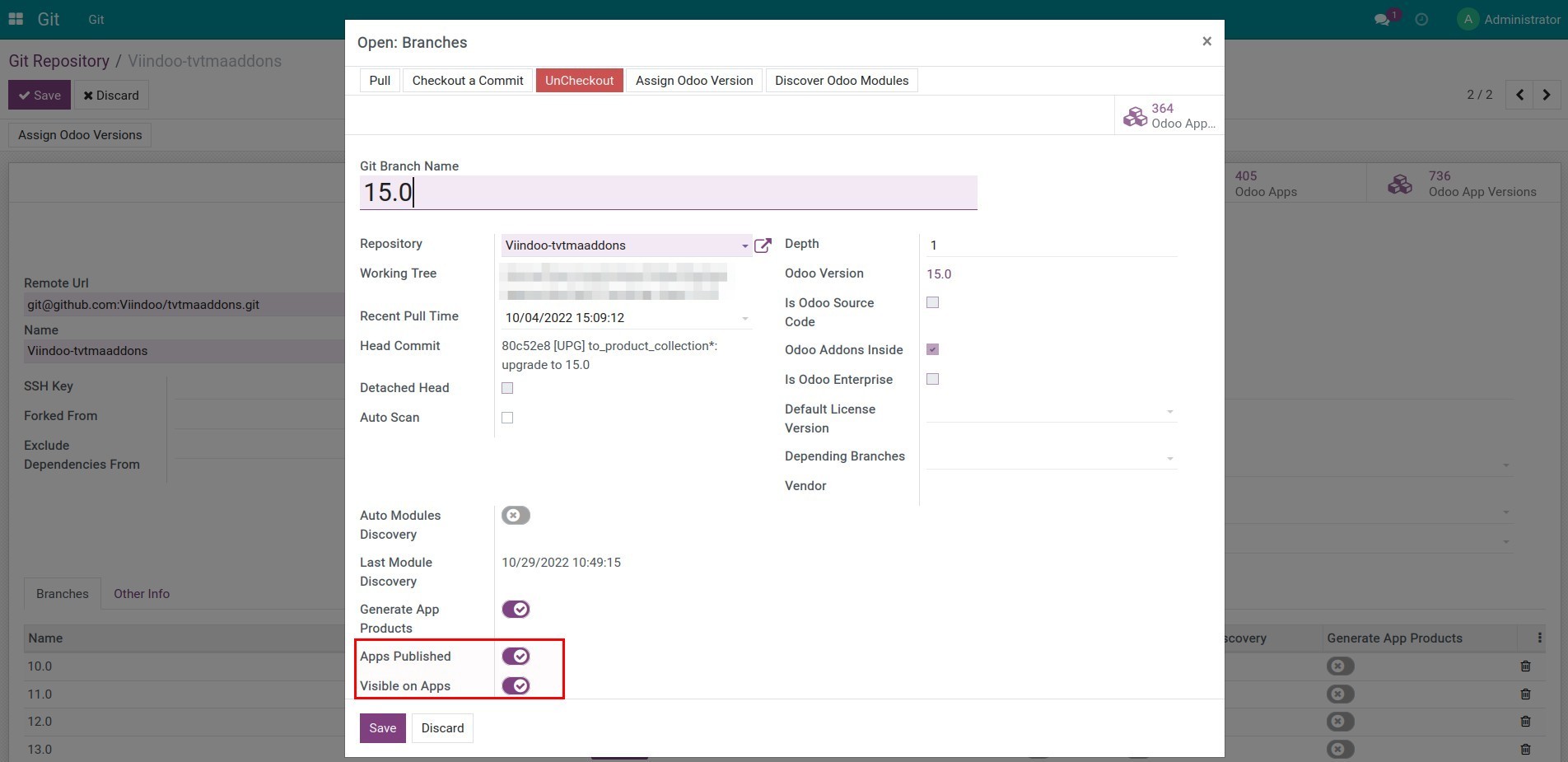
In addition, with the app version you can:
- Publish/Unpublish the app version on the website.
- Put the app version in the appropriate categories when displayed on the website.
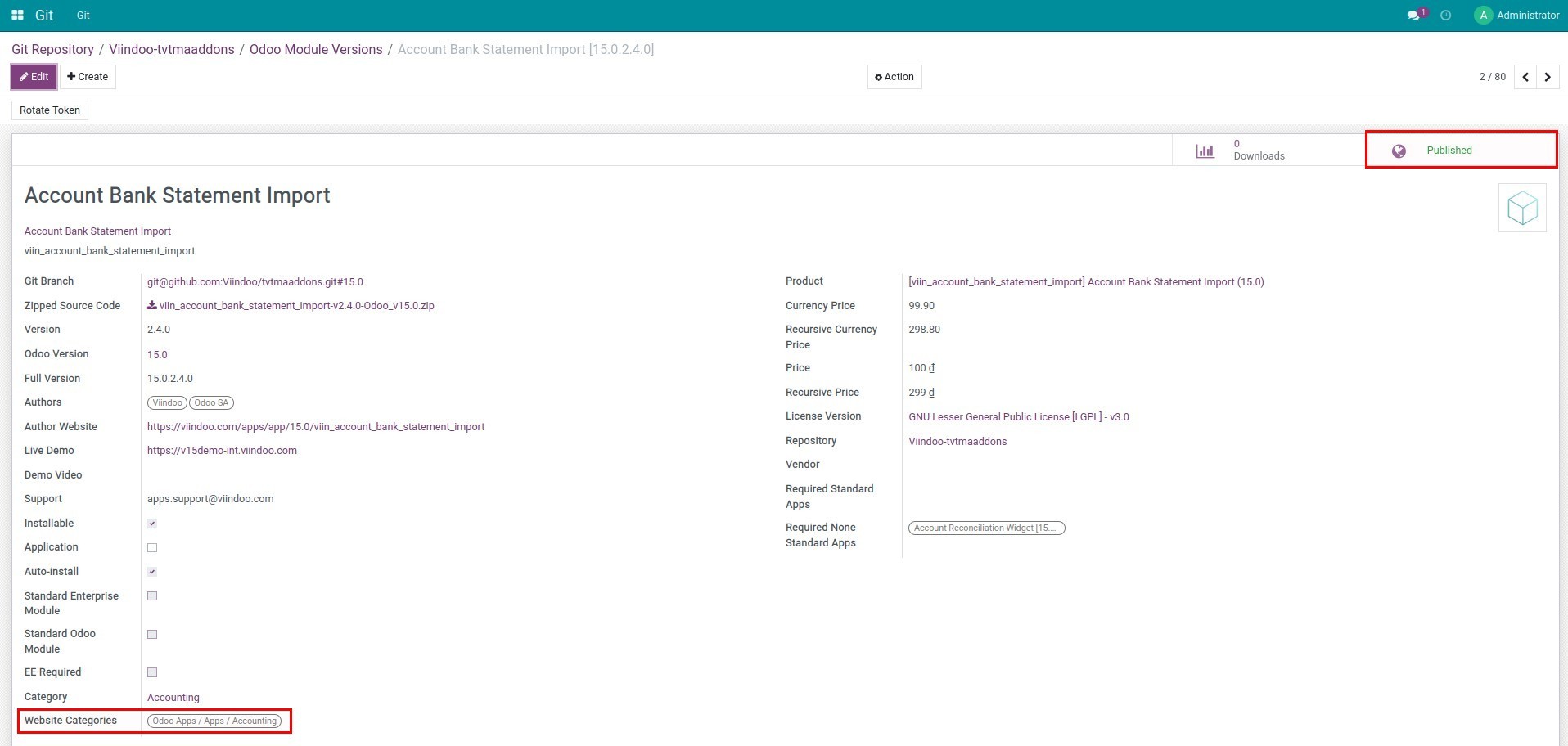
After making the above settings, you can sell apps/modules in the Apps Store on the website.
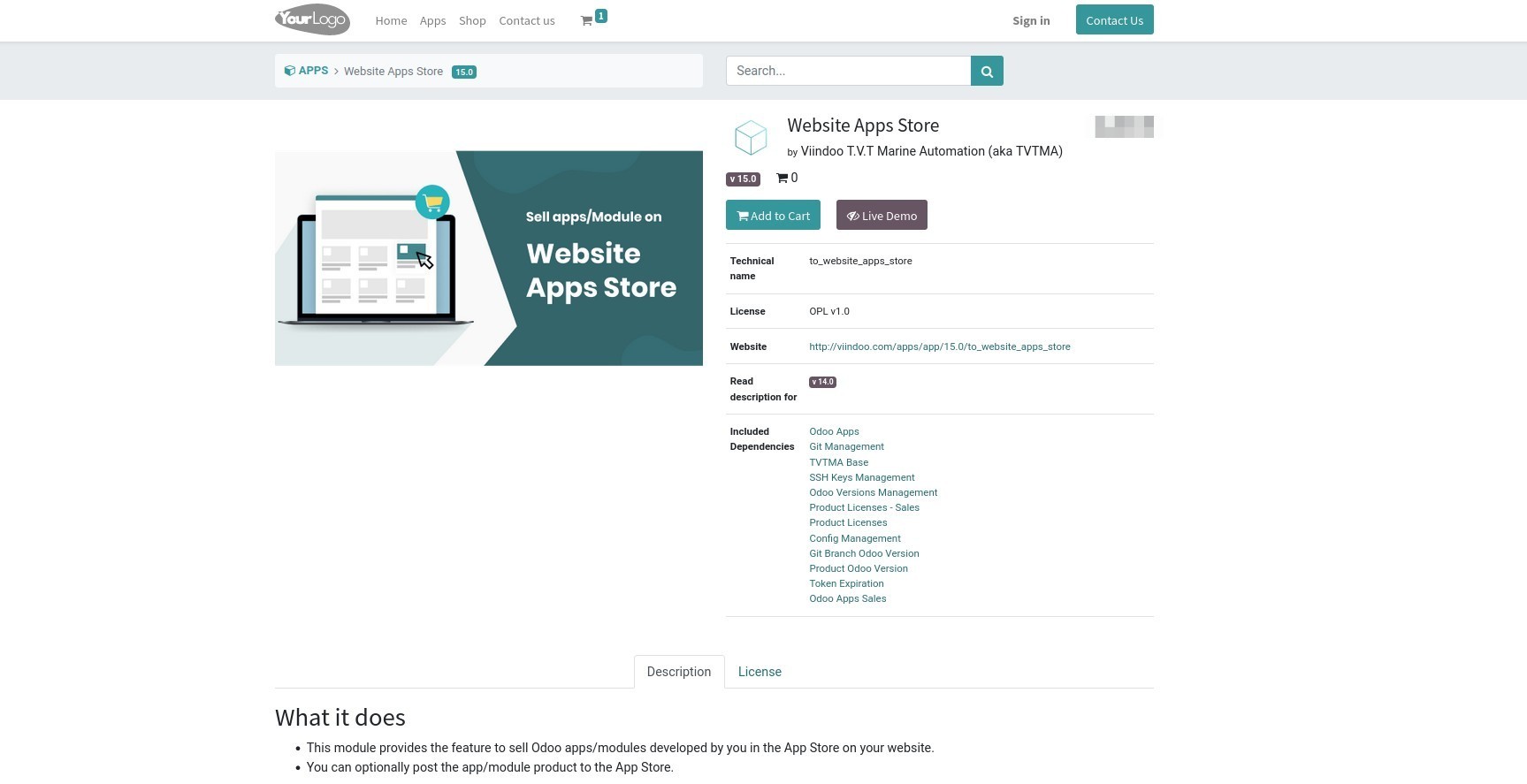
This software and associated files (the "Software") may only be
used
(executed, modified, executed after modifications) if you have
purchased a
valid license from the authors, typically via Odoo Apps,
or if you
have
received a written agreement from the authors of the
Software (see the
COPYRIGHT file).
You may develop Odoo modules that use the Software as a library
(typically
by depending on it, importing it and using its
resources), but
without
copying any source code or material from the
Software. You may distribute
those modules under the license of your
choice, provided that this
license
is compatible with the terms of
the Odoo Proprietary License (For
example:
LGPL, MIT, or proprietary
licenses similar to this one).
It is forbidden to publish, distribute, sublicense, or sell
copies of the
Software or modified copies of the Software.
The above copyright notice and this permission notice must be
included in
all copies or substantial portions of the Software.
THE SOFTWARE IS PROVIDED "AS IS", WITHOUT WARRANTY OF ANY KIND,
EXPRESS OR
IMPLIED, INCLUDING BUT NOT LIMITED TO THE WARRANTIES OF
MERCHANTABILITY,
FITNESS FOR A PARTICULAR PURPOSE AND
NONINFRINGEMENT. IN NO EVENT
SHALL THE
AUTHORS OR COPYRIGHT HOLDERS
BE LIABLE FOR ANY CLAIM, DAMAGES OR OTHER
LIABILITY, WHETHER IN AN
ACTION OF CONTRACT, TORT OR OTHERWISE,
ARISING
FROM, OUT OF OR IN
CONNECTION WITH THE SOFTWARE OR THE USE OR OTHER
DEALINGS IN THE
SOFTWARE.






